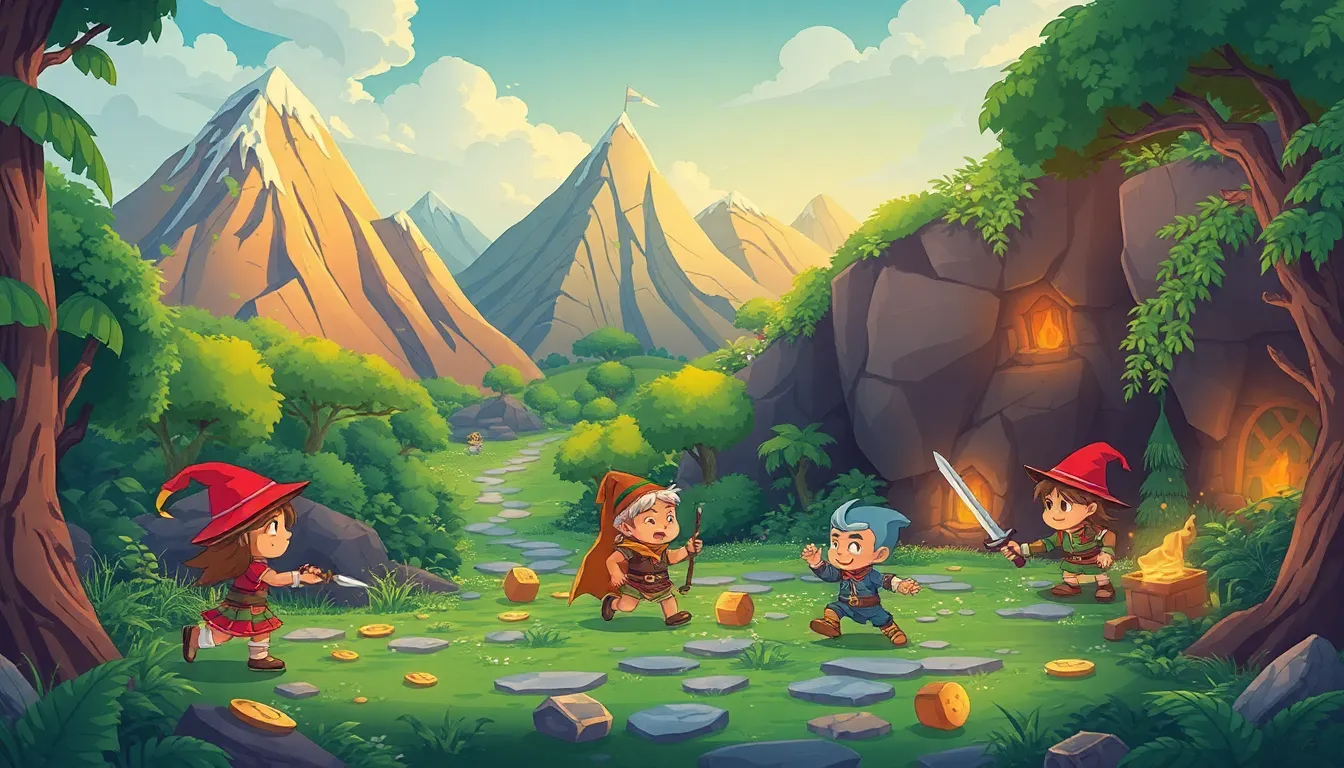In a world where dragons roam and heroes are born, Western RPGs have carved out a unique niche that keeps players coming back for more. These games blend rich storytelling with immersive gameplay, allowing adventurers to create their own destinies. Whether you’re slaying monsters or negotiating peace treaties, the choices you make shape your journey in ways that’ll leave you pondering long after the screen goes dark.
Table of Contents
ToggleOverview of Western RPG
Western RPGs, or role-playing games, feature extensive character customization and immersive storytelling. Players often explore vast open worlds filled with intricate quests. Many of these games incorporate deep lore, which enhances the gaming experience.
Action, strategy, and role-play intertwine in Western RPGs, offering a unique gameplay experience. Strategic combat systems allow for various approaches in tackling challenges. Players can engage in direct confrontation or opt for stealth and negotiation, showcasing their chosen gameplay style.
Notable titles include “The Witcher 3: Wild Hunt,” which highlights rich narratives and morally complex choices. Another example involves the “Mass Effect” series, where character decisions influence the game’s outcome significantly. Popular franchises attract players through their engaging worlds and character development.
Customization is a core feature in these games. Players can shape their characters’ skills, appearances, and backgrounds, which enhances immersion. These choices not only affect gameplay mechanics but also resonate with the overarching narrative.
Western RPGs often emphasize player agency. Choices made throughout the game can lead to multiple endings or diverging storylines, encouraging exploration and replayability. This focus on meaningful decisions ensures that players feel their actions have weight and significance.
Through its unique elements, Western RPGs captivate players, blending storytelling with dynamic gameplay. Engaging characters, rich lore, and player choice define this genre, cementing its place in the gaming landscape.
Key Features of Western RPG

Western RPGs feature several key elements that define their gameplay experience. Central to these games are character development and storytelling mechanics.
Character Development
Character development plays a crucial role in Western RPGs. Players create unique avatars with extensive customization options. Skills, traits, and backgrounds shape gameplay mechanics significantly. Characters evolve through experience points, which improve abilities and unlock new features. The journey often includes making choices that influence character morality, aligning them with various factions. As characters progress, personal narratives deepen, enhancing emotional connections to the game world. Rich customization options empower players to craft avatars that reflect their choices and play styles.
Storytelling Mechanics
Storytelling mechanics enrich the gameplay in Western RPGs. Engaging narratives often feature branching storylines that shift based on player decisions. Choices made during quests create different outcomes, providing varied experiences. Dialogue systems allow for meaningful interactions with non-player characters, influencing the plot direction. Evocative lore adds depth to the world, immersing players in its history and culture. This dynamic approach to storytelling ensures that each player’s journey feels unique and impactful. Intrigue and complexity in narratives often encourage players to explore all available options, enhancing replayability.
Popular Western RPG Titles
Western RPGs often showcase elaborate worlds and rich narratives. Several titles stand out for their unique gameplay and storytelling elements.
The Fallout Series
The Fallout series captivates players with its post-apocalyptic setting. Players explore vast, open-world environments filled with engaging quests. Character customization allows for diverse builds and playstyles, enhancing player experience. Choices throughout the series significantly impact outcomes, creating a sense of agency. Moral dilemmas arise frequently, leading to different endings and replayability. Notable entries like Fallout 3 and Fallout: New Vegas received acclaim for immersive storytelling and intricate character interactions.
The Elder Scrolls Series
The Elder Scrolls series invites players into expansive fantasy realms. Each entry features intricate lore and history, encouraging exploration. Players create detailed avatars and customize their skills to suit their preferred playstyle. The open world fosters a sense of freedom, allowing players to engage in quests at their own pace. Critical decisions lead to branching narratives where actions influence the game’s world and its characters. Titles like Skyrim are particularly noted for their vast landscapes and richly woven quests.
The Evolution of Western RPG
Western RPGs have undergone significant transformations since their inception. Early role-playing games primarily focused on text-based mechanics, where players navigated through stories crafted in simple formats. The introduction of graphical interfaces in the late 1980s marked a major turning point, allowing for more immersive environments. Titles like “Baldur’s Gate” set the stage for intricate narratives and the incorporation of character-driven elements.
During the 1990s, the genre continued to expand with the rise of 3D graphics. Games like “The Elder Scrolls: Daggerfall” presented vast open worlds teeming with exploration possibilities. Character customization became more elaborate, with players tailoring their avatars to fit their preferred play styles. These developments enhanced the sense of agency that players experienced.
As the new millennium approached, innovative gameplay mechanics emerged. Real-time combat, seen in “The Witcher” series, offered dynamic interactions that melded action with role-play. Storyline branching and diverse character paths further deepened engagement, encouraging players to explore various outcomes. The blending of entertainment and player choice solidified narrative complexity as a fundamental aspect of Western RPGs.
Presently, modern titles continue to build on these foundations. Game developers utilize advanced technology to create rich storytelling experiences. Engaging interactive dialogue systems allow for more profound connections with non-player characters. The ongoing appeal of franchises like “Mass Effect” and “Fallout” testifies to the enduring fascination with player agency and the intricate lore present in these expansive worlds.
Emerging trends suggest a bright future for Western RPGs. Developers are incorporating online multiplayer features, fostering community-driven experiences. It’s evident that the evolution of Western RPGs reflects a constant pursuit of innovation and deeper engagement, shaping an ever-expanding landscape in the gaming world.
Western RPGs have carved out a significant niche in the gaming landscape. Their unique blend of immersive storytelling and player agency creates experiences that resonate long after the game ends. The ability to shape one’s character and influence the game world through meaningful choices makes each journey distinct and memorable.
As technology advances, the genre continues to evolve, promising even richer narratives and deeper engagement. With a focus on community-driven experiences and innovative gameplay mechanics, Western RPGs are set to captivate both new and seasoned players alike. The future looks bright for this beloved genre, ensuring it remains a cornerstone of gaming culture.




